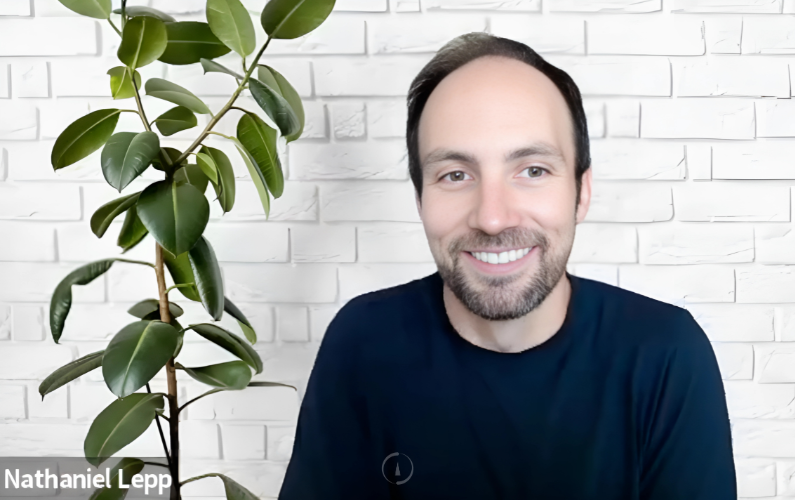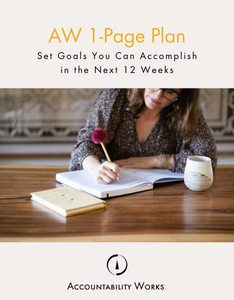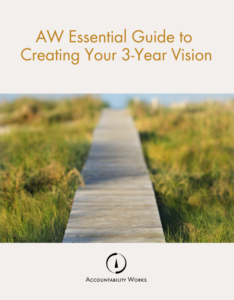I’m so excited to share this month’s Member Q+A with Dr. Nathaniel Lepp. We decided to shake things up here at AW and experiment with video interviews! I think you’ll notice how much more nuance and personality comes through on video.
I felt especially grateful for this conversation with Nathaniel. Even though I’ve had the opportunity to coach Nathaniel, I came away with a deeper understanding of what drives him. He is an incredibly humble human doing very important work in the world, not only delivering babies but also helping people safely taper off of benzodiazepines, an often overlooked area of addiction medicine. He completed his fellowship in addiction medicine at Stanford with Dr. Anna Lembke, whom many of you will recognize from her bestselling book (and AW recommended read) Dopamine Nation.
Here’s a preview of the interview along with a few highlights from the transcript.
Introduction (0:28)
My name is Nathaniel Lepp. I’m a family doctor with specialty in obstetrics and addiction medicine. I’m also a husband and a father of two. I live in Northern California, and I have a big, active life…
My True North/WHY is (0:57)
I think there’s, there’s two ways of answering this. One is, is a big picture, and one is more of like a smaller picture. And the the big picture is, I’m really in pursuit of awe and wonder. That is what drives me. And on some level, [sic] I’m constitutionally optimistic, and I’m always looking for evidence of the fundamental goodness of the universe. I’m looking for things to work out…
My Expertise/Zone of Genius is (3:06)
I’m credentialed as a physician and as an obstetrician and as an addiction medicine physician. And so that’s sort of an obvious answer [sic] but on a more subtle level, I’m able to integrate a lot of information from disparate sources and different levels of information quickly. So you know, if you’re in the delivery room, for example, there’s the patient that’s right in front of you, and they have a body, but they also have words that they’re communicating with. Then there’s all these monitors of things like blood pressure and heart rate, and then there’s the nurse, and the information the nurse is gathering. And then there’s this other in between layers of information. And that’s, that’s one of the things I’m good at, is like just sizing up the information and somehow quickly, [sic] rank ordering, what’s important and coming up with an impression and that ability helps me in the more psychological, spiritual work of helping people transition into recovery, in that I’m able to read people pretty quickly, and it’s something I really enjoy.
What are your daily practices? (6:01)
They’ve been evolving and the work at AW has really helped me pull out daily practices. Part of it is just even the framework of the personal foundation that I’ve found really helpful as though it’s a core bucket of my attention every week is sort of nurturing the the personal foundation every week. Then it begs the question, what’s in it? And how often does it come? And a lot of them just seem to work better for me if they’re really small and daily. So it’s kind of new for me to have daily practices since I’ve been working with AW which is I guess about a year and a half or so. Okay, so in order I guess, I say a prayer as soon as I open my eyes before I wake up and the prayer is some version of, “Thank you God for restoring/for returning my soul to me and and basically the faith that you have put in me.” I do that before I can let any other thoughts come in to try to set the trajectory of the day in the direction of gratitude as opposed to whatever like worrying about some incomplete thing or something that’s happening or I’m nervous about blah blah blah. So, that’s number one…
What is your favorite indulgence? (11:05)
Chocolate, sugar, cream in one. So, probably like a warm chocolate chip cookie, medium softness, big chunky chocolate chips. Maybe with like granular salt and then like just really rich full fat vanilla ice cream.
What are you reading, listening to, or watching? (11:32)
I just finished this amazing book by a rabbi named Alan Lew. It’s called This is Real and You’re Completely Unprepared. It’s about the Jewish high holidays and sort of what they’re all about and ways to sort of interact with them. He’s also an experienced Buddhist practitioner and so it’s got a lot of depth. And then I just started rereading Steven Presfield’s The War of Art, which is all about the resistance that a creative person encounters and working through some of that right now. So, that book is helpful.
And then listening, really anything with Jerry Seinfeld listening watching just like whether it’s a set or a one of his movies or a podcast. I find him to be just so funny and also so wise. He has such a wisdom quality about him. He’s like one of my main teachers. I have every single one of his books. I’ve watched everything he’s ever done.
What is accountability to you? (12:59)
I think the core aspect of accountability is actually a social thing. It’s putting what I say I’m going to do like in the context of a relationship and then the you on the other side are just reflecting back to me this process and I think the process is about aligning. I mean the use of accountability is to align my intention with my actions. But the structure of it is this social thing, this other person checking in on me or even just knowing what I’m doing or what I’m not doing. So, it’s sort of like there’s a reflection that’s happening but in a social context…
How has Accountability Works helped you? (14:14)
It’s helped me so much. Some of the big things are…initially when I came into AW, there was a huge backlog of stuff that I hadn’t done or wasn’t doing or needed to do or etc. And so there was an emotional component of kind of putting the shame and self- judgment and guilt to the side and not necessarily like intensively. It’s not therapy, right? But there was an acknowledgment that that was there and it was like all right let’s acknowledge that and let’s just see what we can do here and I think you know some of the biggest things were reducing the scope of commitment on a given week and and I think that the structure of AW of having a three-year vision, one year, goal quarterly strategies, and weekly commitments, and then sometimes daily, it helps me not feel like I’m dropping the ball on the big stuff when I’m doing something that seems so insignificant. It’s so tiny, you know, sometimes the commitments are like create a login for this website that’s required. You know, but it’s like step one of 40 to like pay my taxes, you know, or whatever.And it feels like its not enough but it is the right amount because it’s an amount that can get done.
So there’s chunking things down. Focusing on completion is really helpful. Consistent completion. There’s a momentum generation that it’s really helped me with.
And I actually really do come to appreciate the breaks like when there’s a break between quarters or something like that. It’s like, okay, good.
I feel like I’m working more consistently, which is what I want…
If people want to connect with you or learn more about what you do, where can they find you? (20:45)
Thank you so much to Nathaniel! I loved talking to him and learning more about what drives him and thank you, reader for reading, watching, or listening.
If you want to learn more about our program, click here.



